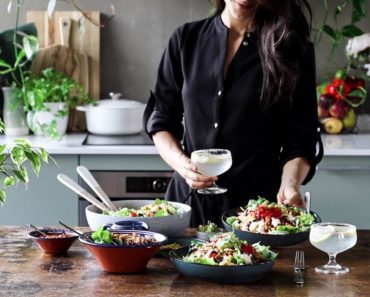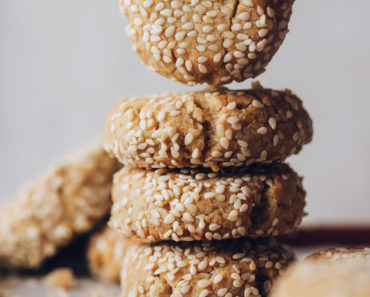Ramadan Mubarak 2019
In today’s episode of Dr Nora I give you my 5 top tips for having a healthy Ramadan.
WHAT IS RAMADAN?
Ramadan is a holy month that is observed by many people around the world. It primarily involves fasting from dawn until sunset, that means no water or food during that time. And it’s for that reason that not everyone can fast. Groups such as the pregnant or breast feeding, certain medical conditions and the frail and elderly not to fast. Whilst they may not be able to fast they observe the month in other ways such as going to the mosque. If you have any questions about your health eligibility to fast then please speak with your local doctor, you can even come by for a sick note.
The act of fasting allows for one to reflect, recalibrate and detox from the routine day to day life, It allows for you to pause, reflect and rewind.
If you are able to fast then here are my 5 top tips for getting you through a healthy ramadan.
1. MEAL PREP
It may sound obvious but without structure or routine it’s easy to pick up the first thing we see in the fridge or the shops without thinking. These choices can sometimes be detrimental to your health goals. For example, have you ever been shopping when you’re hungry? You’re more likely to pick up more food than you need and generally it may be processed or ready to eat which may not be the healthiest.
2. BREAK YOUR FAST WISELY
Congratulations you’ve made it through your first fast. As tempting as it may seem to rush into the kitchen and eat everything possible, I’d advise not to do this.
Remember your digestive system has been resting for the past 12-18 hours depending where you are, so ease it back into shape slowly. By eating too much too quickly, acid production in the stomach will go into over drive and cause heart burn. Also remember during your fast, the stomach has shrunk so eating quickly will cause it to stretch rapidly and it will hurt. Not only are there health benefits to eating slowly, but it will also allow for you to appreciate your new found clarity on your relationship with food.
Traditionally, people break their fast with 1-2 dates which is a great way to start. However, make sure you choose dates that are not covered in glucose or have added sugar. The best type are natural dates such as Medjool. Not only are they healthy but they’re rich in fibre and nutrients such as magnesium and potassium and not to mention natural sugar.
Follow this with a glass of water or milk and take a short break before your main meal.
3. WHAT TO EAT
To help you through your fast choose foods that release energy slowly – these include low GI foods such as sweet potato, beans, pasta and basmati rice. Also choose foods that are high in fibre foods like pulses, vegetables and a handful of nuts. It’s really important to have balanced meals.
Aim for 45-30% carbohydrates, 20-30% protein and under 35% fat. Be aware not to gorge on sugary foods. Eating lots of sugar after fasting can lead to withdrawal symptoms and cravings for more sugar, it can also cause low energy, headaches, migraines and mood swings, which are not ideal. Also make sure you drink plenty of water and non-sweetened beverages.
4. EXERCISE
The best time to exercise whilst fasting is an hour prior to breaking your fast. Your carbohydrate stores will be low so only do low intensity training, such as going for a walk, doing some stretches or yoga. Other ideal times to exercise are after you’ve eaten your main meal and following your pre-fast meal – suhoor. At these times, you can go for a higher intensity workout, such as jogging, cycling or using the machines in the gym such as the cross trainer.
5. EAT A SENSIBLE SUHOOR
Suhoor relates to the meal eaten prior to dawn. It’s easy to panic and binge eat on lots of food but, by over eating you’ll feel tired and sluggish for the rest of the day. So always be sure to eat in moderation.
The best foods to eat at this meal are your slow releasing foods, such as oatmeal, eggs, a little meat, fruit and veg. Of course drink plenty water. My top tip for this is to drink small amounts often, if you drink too much at once, your stomach will feel full and you won’t have much room for food.
And my final tip is don’t forget to reflect and think about the reasons you are fasting and remember its not all related to abstaining from food.
The information provided in this video is not a substitute for getting individualised advice by an accredited healthcare professional.
COMPANION VIDEOS:
How to Fast Healthy: https://youtu.be/5Dy0IOQ20sc
Low Fat Dessert Recipe: https://youtu.be/_hlJuJPo_Bg
Type 2 Diabetes: https://youtu.be/UUBuDnVqpkM
Type 2 Diabetes Facts: https://youtu.be/k9IAvIN5eew
Thanks for watching, I wish you all a happy and successful Ramadan.
Take care and stay healthy.
Dr Nora x
FILM BY VTUDIO | https://vtudio.com
MUSIC BY Doug Maxwell – Swinging with the Sultan
View the Original Source by Clicking Here



































